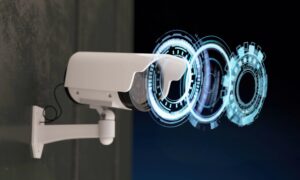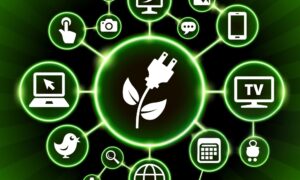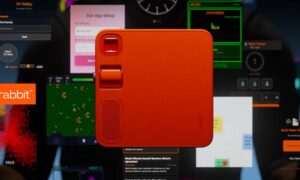As we move towards 2025, Artificial Intelligence (AI) is poised to fundamentally transform the job market. AI automates repetitive tasks and creates new career paths, profoundly reshaping the future of work and careers. Automation raises concerns, but AI will not just replace jobs; it changes work’s nature significantly. AI creates new opportunities, boosts productivity, and challenges workers to adapt in unexpected ways.
This article explores how AI reshapes careers and which industries will thrive or face disruption.
It also explains how workers can stay ahead and secure jobs in an increasingly automated future.
The Rise of Automation: Redefining Job Roles
By 2025, many traditional jobs will look vastly different. AI-powered automation will be at the forefront of this transformation, especially in industries like manufacturing, retail, and logistics. Robots, drones, and AI systems will take over repetitive, low-skill tasks, allowing human workers to focus on more creative, decision-making, or managerial roles. This shift will enable businesses to increase efficiency, reduce costs, and improve accuracy.
In manufacturing, AI and robotics automate assembly lines, reducing manual labor in quality control, packaging, and assembly tasks. Machines perform complex, repetitive tasks with precision, speeding up processes and reducing errors. However, factory jobs will not disappear entirely; humans will oversee operations, maintain machines, and manage schedules. The nature of factory work will evolve alongside these technological changes.
Retail is another sector seeing rapid AI adoption. Self-checkout systems, autonomous delivery drones, and AI-powered inventory management are already reshaping how stores operate. These innovations allow employees to focus on customer service, marketing, and logistics rather than stocking shelves or managing inventory. As this trend grows, workers must adapt to higher-skilled roles that complement AI technology. These roles include overseeing AI systems and managing customer experiences.
.
AI-Powered Jobs: Emerging Careers in 2025
While AI will automate many roles, it will also create entirely new job categories. The rise of AI-powered jobs will lead to demand for skilled professionals who can build, program, and manage AI systems. Experts in fields like data science, machine learning, and AI development will continue to be in high demand. These roles require specialized knowledge in mathematics, computer science, and engineering, but the opportunities are vast.
AI Trainers will become a crucial role in organizations. These professionals will train AI models by providing them with real-world data and ensuring the systems learn in an unbiased, effective way. While AI systems are capable of learning on their own, they still require human guidance to understand the nuances of human behavior, cultural contexts, and societal norms. This will be especially important as AI systems are deployed in areas like healthcare, finance, and law enforcement, where accuracy and fairness are essential.
In addition to technical roles, AI ethics specialists will emerge as a key profession. As AI becomes more integrated into daily life, the ethical implications of AI decision-making will become more pressing. AI ethics specialists will work to ensure that AI systems are developed and deployed responsibly, addressing concerns like bias, transparency, privacy, and accountability. These professionals will be instrumental in shaping policies, laws, and regulations around AI usage, ensuring that technology serves the public good without causing harm while reshaping careers.
Human-AI collaboration experts will also be in demand. These professionals will focus on how humans and machines can work together effectively. Rather than seeing AI as a replacement for human workers, they will look for ways to leverage AI as a tool that enhances human capabilities. For instance, doctors could collaborate with AI systems to diagnose diseases more accurately, while designers could use AI tools to enhance their creative process.
Skills for the AI-Driven Future
As AI reshapes the workforce, the demand for certain skills will change dramatically. In 2025, soft skills—such as creativity, emotional intelligence, and critical thinking—will be more important than ever. While AI can analyze data, detect patterns, and perform repetitive tasks with speed and precision, it lacks the emotional and cognitive capabilities that humans possess. Skills like problem-solving, empathy, and leadership will continue to be valuable in roles that involve human interaction or creative tasks.
Additionally, technical skills will become increasingly important as more workers are expected to interact with AI systems. Professionals in various industries will need a basic understanding of AI and its capabilities to work effectively alongside it. This might include learning to use AI-powered tools for data analysis, understanding how AI systems make decisions, or even how to fine-tune AI models for specific tasks. Programming languages like Python, R, and JavaScript will continue to be in high demand as AI becomes more pervasive.
As a result, educational systems will need to adapt to meet these new demands. Traditional college degrees will still be valuable, but microcredentials, boot camps, and online courses focused on AI and data science will become increasingly popular with automation. Workers will need to stay agile, constantly learning and adapting to new technologies to remain competitive in the job market.
The Impact on Remote Work and Flexibility
One of the most significant changes AI will bring to the workforce is the rise of remote work and flexible job opportunities. AI systems will be able to handle routine tasks, giving employees more freedom to focus on high-value work, often from any location. As AI helps companies automate operations, businesses will need fewer employees on-site and more skilled workers who can work remotely.
AI will also facilitate more efficient collaboration in distributed teams. For example, AI tools can help manage project workflows, provide real-time feedback on work quality, and even recommend improvements. These systems will allow for global teams to collaborate seamlessly across time zones, as AI can handle tasks like scheduling and time zone coordination.
AI’s Role in Reducing Inequality in the Workforce
Despite fears of job displacement, AI could play a pivotal role in reducing inequality in the workforce. By 2025, AI tools could make education, healthcare, and training more accessible to people from all walks of life. AI-powered platforms could offer personalized learning experiences, giving students in underprivileged areas access to high-quality education. In addition, AI could help people with disabilities by providing assistive technologies that make it easier to find employment or access services.
AI could also empower workers in low-wage industries by automating menial tasks and allowing them to focus on higher-value work. This will enable them to move up the career ladder and access better opportunities, creating a more inclusive and fair workforce.
Preparing for the Future: Embracing AI and Change
As we approach 2025, it’s clear that the future of work will be closely tied to AI. For workers, embracing these changes and adapting to new technologies will be crucial to success. Rather than fearing automation, we should focus on how AI can complement human work, create new opportunities, and drive innovation.
By investing in AI education, reskilling initiatives, and a mindset of lifelong learning, individuals and organizations will be better equipped to thrive in the age of automation. AI is not here to replace us—it’s here to help us unlock our full potential.

























